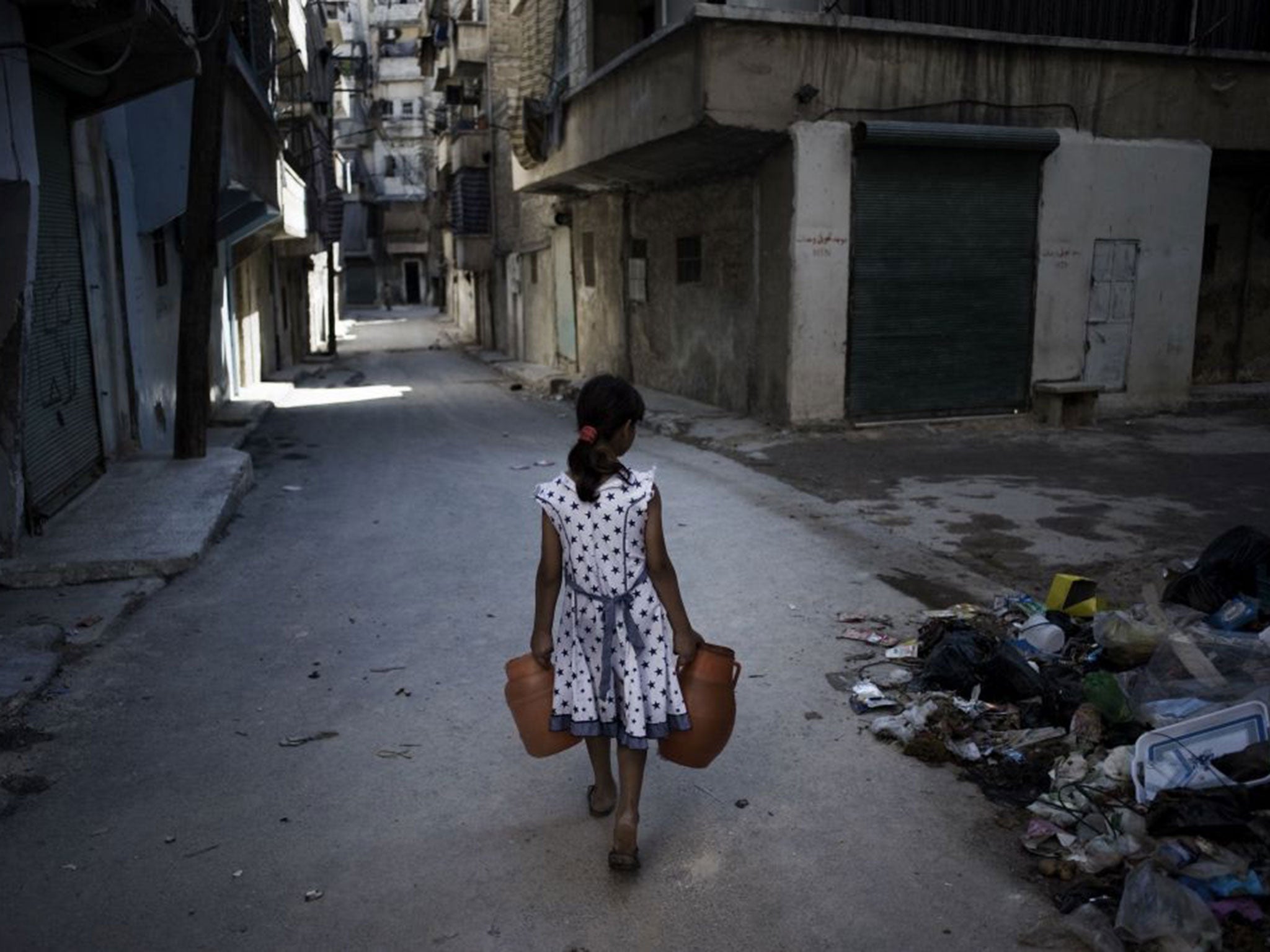Syrian rebels cut off water to Aleppo in botched attack on regime areas - and manage to create shortage in their own strongholds

Your support helps us to tell the story
From reproductive rights to climate change to Big Tech, The Independent is on the ground when the story is developing. Whether it's investigating the financials of Elon Musk's pro-Trump PAC or producing our latest documentary, 'The A Word', which shines a light on the American women fighting for reproductive rights, we know how important it is to parse out the facts from the messaging.
At such a critical moment in US history, we need reporters on the ground. Your donation allows us to keep sending journalists to speak to both sides of the story.
The Independent is trusted by Americans across the entire political spectrum. And unlike many other quality news outlets, we choose not to lock Americans out of our reporting and analysis with paywalls. We believe quality journalism should be available to everyone, paid for by those who can afford it.
Your support makes all the difference.In a botched attempt to stop drinking water reaching government-held districts of Aleppo, rebels managed to cut off water supplies to large parts of the city in northern Syria including their own strongholds. Women and children are being forced to queue up with cooking pots, kettles and plastic bottles to get water from the fountains of mosques and wells that may be contaminated.
The water shortage started 10 days ago when the rebels, who control the two main pumping stations, tried to keep water flowing to their areas in east Aleppo, but stop it reaching the government-held west of the city. Describing the action as “a crime”, Rami Abdel Rahman, the head of the pro-opposition Syrian Observatory for Human Rights, said that the al-Qa’ida affiliate Jabhat al-Nusra and other rebel groups were responsible for the water shortage.
People in both halves of the divided city have been forced to rely on ancient wells and fountains. In west Aleppo the Red Crescent and government agencies have provided some water but say it is not safe to drink over an extended period. Some trucks used for taking away waste water from houses are now selling drinking water likely to be contaminated. Fights have broken out in queues when members of local defence committees and officials have demanded they be given priority. Aleppo used to have a population of 2.5 million though at least one million have fled fighting.
A member of the Aleppo Water Department told the Beirut paper al-Akhbar that the Sharia Authority, which unites the rebel movements, controls a crucial pumping station in the Suleiman al-Halabi region. He said that there is a “danger of insurgents pumping water only to the neighbourhoods that they control as it might lead to the collapse of the integrated water system”.
Even before the recent cut-off of supplies, the water system of Aleppo depended on a degree of grudging co-operation between government and opposition mediated by the Red Crescent. The pumping station depends on deliveries of diesel to fuel a generator.
Water has become very expensive in a city where it used to be free. It is the latest disaster to befall Aleppo which, since 2012, has been divided in two. The government has been dropping barrel bombs packed with explosives on rebel districts causing heavy casualties and a further exodus of the population. The rebels have been firing mortars randomly into government areas.
Read more: Where is the anger over Syria?
Unlike in central and southern Syria, the rebels are holding their own in Aleppo where they recently launched an offensive which government forces had difficulty in repelling. Last week the Islamic Front detonated explosives at the end of a 400yd-long tunnel under the Carlton Citadel Hotel killing many government soldiers.
The forces of the opposition are dominated by Jabhat al-Nusra and other al-Qa’ida type groups. Their civil war with the Islamic State of Iraq and the Levant (Isis) is mostly being fought further east along the Euphrates Valley with 100,00o people being forced to flee their homes in the eastern province of Deir Ezzor in recent days. The Syrian Observatory says that battles between Jabhat al-Nusra and Isis killed 230 fighters in the last 10 days.
The rebels are concentrating their efforts on Aleppo after the final loss of Homs Old City last week when 1,200 rebel fighters were evacuated on buses. Though the government has long been in control of most of Homs, the evacuation marks a serious symbolic defeat for the opposition since the city has been at the centre of media attention. Only the Waer district in the north-west of Homs now remains under partial rebel control, but is sealed off by government checkpoints.
Join our commenting forum
Join thought-provoking conversations, follow other Independent readers and see their replies
Comments